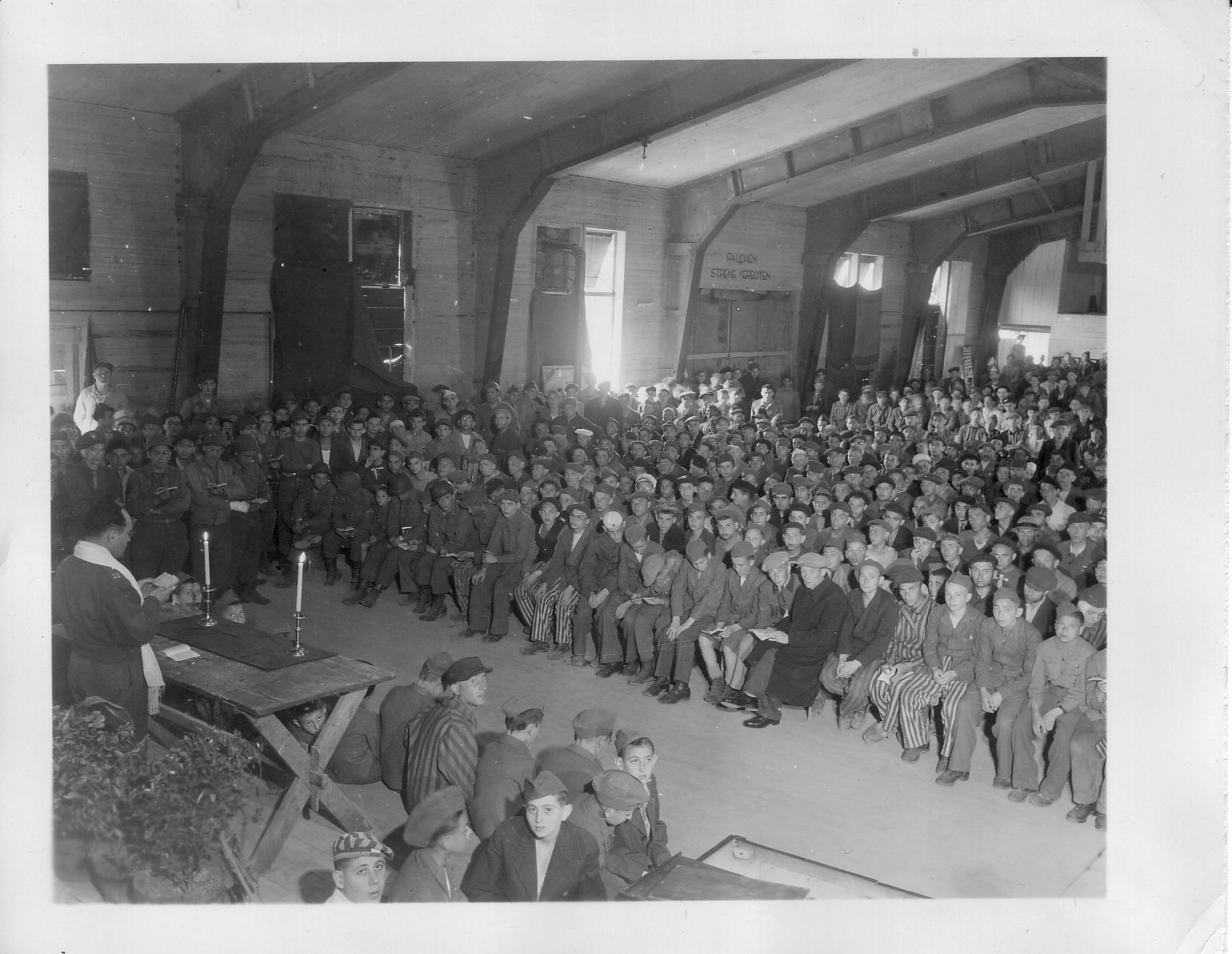Jewish US Army Major explains why he resigned over US support for Gaza war
Mann, whose grandparents fled antisemitism in Europe, said he had been disheartened by the high civilian death toll in Gaza

Harrison Call appeared on CBS News to discuss his resignation from the U.S. Army out of protest over Israel’s war in Gaza. (Screenshot)
An American Jewish military intelligence officer has resigned to protest U.S. support for Israel in its war against Hamas in Gaza, saying that what is happening to the Palestinians there reminds him of the Holocaust.
Major Harrison Mann submitted his resignation to the military and the Defense Intelligence Agency in November. He announced it publicly last month in a letter that gained renewed attention this week, when he officially exited the military.
“As the descendant of European Jews, I was raised in a particularly unforgiving moral environment when it came to the topic of bearing responsibility for ethnic cleansing — my grandfather refused to ever purchase products manufactured in Germany — where the paramount importance of ‘never again’ and the inadequacy of ‘just following orders’ were oft repeated,” Mann wrote in the letter.
“I am haunted by the knowledge that I failed those principles,” he added. “But I also have hope that my grandfather would afford me some grace, that he would still be proud of me for stepping away from this war, however belatedly.”
Mann told the Jewish Telegraphic Agency that he was not saying the war in Gaza is the same as the Holocaust.
“I think there’s no benefit in weighing tragedies against each other and it’s not what I’m trying to do,” he said in an interview Wednesday. “Obviously the Holocaust was much bigger – but that doesn’t mean that smaller massacres of innocent people [also] shouldn’t happen.”
But Mann also said his thinking about whether and how to oppose the war was inspired in part by his experience visiting Yad Vashem, Israel’s Holocaust memorial, while participating in an IDF training for U.S. intelligence officers in 2019. He recalled seeing the iconic photograph of Jewish U.S. soldiers leading a prayer service for liberated prisoners at Buchenwald.

Rabbi Hershel Schachter leads a Shavuot prayer service in the cinema barrack for survivors of the Buchenwald Concentration Camp, May 18, 1945. (Charles W. Herr, Jr., U.S. Signal Corps via National Archives)
“That was the most proud I ever felt to be in the Army – that I got to wear the same uniform and be in the same army as those men,” he recalled. “It’s hard not to think back to that when we are seeing — again — photos of starved, emaciated children and burned corpses.”
He added, “I am now contributing to that instead of being the ones who liberated them.”
Mann’s exit adds him to a small number of government officials who have resigned to protest U.S. support for Israel and its military campaign in Gaza. Lily Greenberg Call, a special assistant to the chief of staff of the Department of Interior, became the first Jewish staffer to resign publicly over the Biden administration’s support for the war last month; she said at the time, “There are so many of us who feel this way.”
Mann said he had grown alarmed at U.S. support for Israel on Oct. 7, the day that Hamas invaded Israel, killing approximately 1,200 people, mostly civilians, and abducting some 250.
“At the same time that we were able to witness and understand the casualties and suffering and crimes inflicted on Israelis during that attack, I think everybody who follows the region had this dread that there was going to be a very violent and disproportionate response back onto Gaza, like there frequently has been in response to smaller attacks,” he said.
Mann added, “Seeing from day one that there were going to be an incredible amount of civilian casualties, and seeing that everyone on the American side was well aware of that, was very demoralizing.”
Mann’s resignation came 13 years into his military career, which he began after graduating from the College of William and Mary in 2011. He said there were previous moments in his career as a Middle East specialist where he had reservations about policies or partners he was required to support. But he said this time, with more experience under his belt and more insight about operations within the intelligence apparatus, he felt he had little choice but to resign in protest.
Mann said he had not been in touch before his resignation with groups working to stoke dissent against the war and aid people who oppose it within the Biden administration. But he said he was now hearing from others inside the administration who have sought his advice about how to navigate their own opposition to Israel’s military campaign.
He said he knew of people who had asked to be given new responsibilities, who were refusing to continue conducting work on the Israel-related portions of their portfolios and who were demanding assurances that the work they were doing is consistent with U.S. and international law.
“To resign is not a feasible option for a lot of people,” he said.

Harrison Mann celebrated his bar mitzvah in his 20s while stationed with the U.S. Army at Camp Buehring in Kuwait in 2015. (Courtesy Mann)
Mann told CBS News on Tuesday in his first public interview that he believed Israel’s actions in Gaza represented “some measure of ethnic cleansing” and that he had decided to make his letter public after the Biden administration expressed reservations about Israel’s war conduct but went ahead with supplying weapons nonetheless.
He also told CBS that the Israeli army had “almost certainly” used American weapons against civilians in Gaza, which would violate the terms of their use. Asked whether the Israeli army had done so intentionally, Mann said, “I don’t know how you kill 35,000 civilians by accident.”
Gaza officials say more than 36,000 people have died in Israel’s campaign but do not differentiate between civilians and combatants. Israeli officials, who say their military takes measures to minimize civilian casualties, believe that more than a third of the deaths have been combatants. No independent data exists.
Mann told JTA that he did not think the precise tally of civilian deaths was important in forming his perspective on the war. “If it turns out I got it totally wrong and only half of that is civilians, I wouldn’t consider that an acceptable outcome either,” he said.
Mann said that in addition to his grandparents who fled Eastern Europe for North America, he has a grandmother who was born in Palestine, before Israel’s establishment, after her family left Hungary. He lived briefly in Jerusalem while studying Hebrew as a college student (he also studied Arabic in the West Bank and Lebanon) and as an adult said he had grown more engaged in his Jewish identity — celebrating his bar mitzvah while stationed in Kuwait. He also said he had seen pro-Israel sentiment shift within his own family over the course of the war, especially as he shared his own thoughts about how unconditional U.S. aid has given Israel little incentive to show restraint in a volatile region.
“I think it’s important for Jewish Americans to understand how U.S. support for Israel right now is making America and Israel immeasurably less safe,” he said.
“I do understand why Israel is incredibly meaningful to Jews who live outside of it,” Mann added. “Many of them had the same experience that my grandparents did. … This was their refuge. But it’s not the 1940s or the 1840s anymore, and I think the biggest threat to Israel and the Jews now is Israel’s own behavior.”
This article originally appeared on JTA.org.














